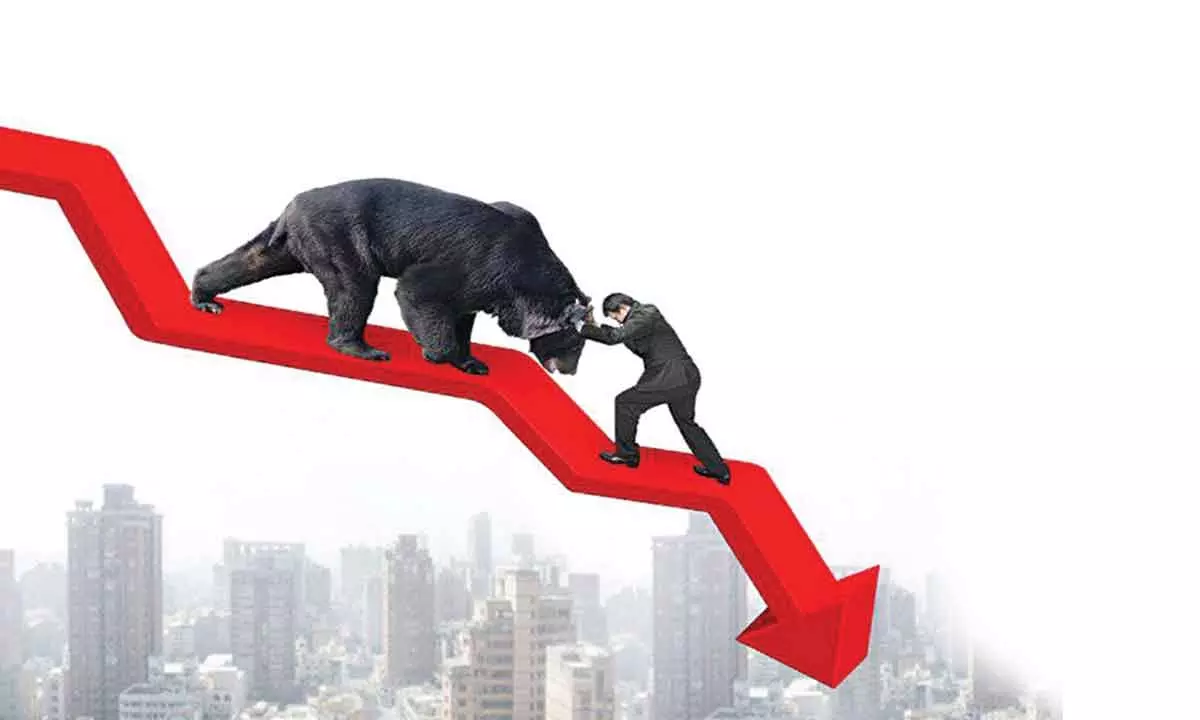How to take right investment decisions in a bear market?

The cyclical movement of the market is quite natural, It’s like the ECG of a human - the graph is never flat, but zigzag representing the life
Currently we're experiencing one of the worst financial conditions in more than a decade. Probably after the Great Financial Crisis (GFC) of 2008 and Great Depression of the 2030s, the markets have undergone such a tumultuous period recording the first six months in any year.
All the equity, debt and commodity markets have remained volatile for the year, including the crypto assets. All markets are now in an official bear market. But how should one respond to these situations?
Its Natural: The cyclical movement of the market is quite natural. It's like the ECG (electrocardiogram) of a human, the graph is never flat but zigzag representing the life. The ups and downs of the market depicts the buy-sell of the various securities. It's a collective index of the mood of the market participants. Peter Lynch, one of the greatest fund managers of all times, said, "you get recession, you have stock market corrections. If you don't understand that's going to happen, then you're not ready, you don't do well in the markets."
Reversion to mean: Markets operate in cycles and so when the stock prices go ahead of the earnings, the valuations would reach dizzying heights that can't be justified. The euphoria at some point fizzles resulting in the bursting of the bubble and so the prices come down. That's how averages work, we've uber highs and extreme lows. History shows that very rarely markets trade at averages but then averages are arrived i.e., they're the records of the historical values.
Cuts flab: There's a saying in Telugu which loosely translates to, 'not all bulge is muscle'. During an economic expansion, the stock prices tend to move a lot ahead of their fundamentals, creating an illusion of invincibility because of which the investors tend to believe that the stock or the company will outperform continuously forever. But reality is different. At times when the stock valuations gyrate to unprecedented highs and when the rationale is unjustifiable, the stocks tend to lose the earlier momentum.
Any small sign of weakness is extrapolated just like how any positive was done during the growth phase. This results in cutting the flab (price) of the stocks. At times this is a necessary exercise as this allows the grain to segregate from the chaff. During a bull market phase, many not-so promising or profitable companies tend to ride the wave due to the overall positive thrust towards the sector. A reality check helps in distinguishing the originals from the imitators. This is what happens during a bear phase, a test for the survival of the fittest, allowing the garbage to be swept out.
Jewels at zilch: As stated earlier, in a democratic fall, no stocks are spared making all the stocks to correct. The valuations of even good companies are battered allowing the investors to pick these gems at a reasonable or attractive valuation. Though, all businesses suffer in a downturn, it's the strongest and profitable companies that not only survive but thrive in the absence of other namesakes. These skilled companies expand their e share even as the overall market begins to shrink. These companies will enormously benefit when the tide turns around preparing to be forefront in the next bull phase.
Risk management: The principles of risk management like diversification and asset allocation would come fore in these times. Investors would realize the importance of these and the pain of not following some of these rudimentary details in their investment process.
It also helps in refining their philosophy and perspective towards investing in stocks i.e., the stock selection, financial and other parameters. In a bull run, most of these tend to be detrimental or menial but it's at tough times that risk management becomes crucial. It's hence to be adopted part of the investment strategy. One has to remember that, to continue a fight, one has to survive and the first rule of survival in investing is to not make a loss.
Invaluable lessons: They say that in stock markets wealth is transferred from the inexperienced to the wise. Wisdom often comes from experience. Investors who have ventured in markets over period understand the market gyrations and how one must respond to these fluctuations. It's said that higher IQ (or analysis) would help make headway in investing than a balanced behaviour or attitude. Investors who have spent considerable amount of time and its cycles would get to experience the varied emotions that markets generate.
These experiences humble the investor as they comprehend the role of luck in their fortune. Such lessons learnt are usually stand in good stead for their preparation into future. In a way, market corrections are a chance to reform, regain, realign, reallocate and refocus their portfolios to derive better future experiences and outcomes.
(The author is a co-founder of 'Wealocity,' a wealth management firm and could be reached at [email protected])














